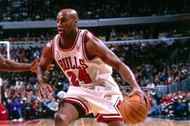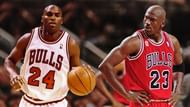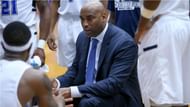In the glaring absence of major professional sports both America and worldwide due to the global pandemic, The Last Dance has been a ratings bonanza for ESPN. The 10-part documentary chronicles the Chicago Bulls' final championship season in 1998. It was highly anticipated- slated to begin in June, but moved up to April.
For people who followed the Bulls during that era (including myself, as a mere 9-year-old), there were a lot of events featured on the show that brought back some memories. A lot of behind-the-scenes information that people did not know also found its way into the documentary.
For young NBA fans and players, this serves as an excellent history lesson on one of the most dynastic teams in not only NBA history, but modern sports history. They were bigger than basketball- they were part of pop culture. People who didn’t watch a second of basketball knew who Michael Jordan was, and knew at least something about the Chicago Bulls.
During their run of six Championships in eight years, MJ, Scottie, the Worm (in the second three-peat), and Phil piled up the records and jewelry. Some lesser known players also partook along the way. The key to winning is not just the superstars, but "the others", as Shaq would say.
Explore the NBA Draft 2024 with our free NBA Mock Draft Simulator & be the GM of your favorite NBA team.
For those six Championships, the Bulls had an assortment of role players, including aging veterans, journeymen, and young and/or sometimes misunderstood talent. These players became key contributors on a winning team. One of those players this article will look at is Scott Burrell, who was something of a foil for Michael Jordan during that season.
Also Check out: Michael Jordan's Net Worth
Scott Burrell's NBA career

Scott Burrell has been featured a great deal in The Last Dance, as a frequent target of Michael Jordan’s ribbing, and at other times, his ire. However, those intense practices and locker room conversations prepared Burrell to be a key contributor for the Bulls that season in 1998.
Scott Burrell was a backup to Scottie Pippen and Jordan, at small forward and shooting guard respectively. The former UConn Huskie played basketball and baseball like Jordan, and was actually drafted in the MLB by the Toronto Blue Jays in 1990. The 6' 7" swingman provided outside shooting, a necessity in the triangle, along with some gritty defense and athleticism.
Burrell had never appeared in a playoff game prior to signing with the Bulls. He was drafted by the Charlotte Hornets in the first round as the 20th overall pick. He found some success playing with a young, talented Hornets team, led by Alonzo Mourning and Larry Johnson. The team also featured players like Muggsy Bogues, Dell Curry, and Hersey Hawkins.
Scott Burrell became the starting small forward by his second season, and showed an impressive all-around game: he averaged 11.7 points, 5.2 rebounds, 2.5 assists, 1.7 steals, and 0.6 blocks. But before the playoffs, he suffered one of the most dreaded injuries in sports: a ruptured Achilles' tendon.
Those 1994-95 Hornets, although 50-32, would lose in the first round to, ironically, the Bulls, when Jordan returned from baseball as number 45. Burrell returned eight months later, but would then have shoulder and knee issues, and he was traded to the lowly Golden State Warriors in 1996-97.
However, the much-maligned Bulls general manager, Jerry Krause, saw something in Burrell. The Bulls had room for another player on the wing besides Jordan, Pippen, Harper, and Kukoc. So, before the 1997-98 season, Burrell was acquired from the Warriors in exchange for forward/center Dickey Simpkins (who would be re-acquired around the trading deadline).
In 80 games and 3 starts, Scott Burrell averaged 5.2 points, 2.5 rebounds, 0.8 steals, and 0.5 blocks in 13.7 minutes. He also shot 35.4% from 3-point range. One of his finest games as a Bull came in Game 3 of the first-round, in a tougher-than-expected match-up against the 8th seeded New Jersey Nets.
Burrell would score 23 points, helping the Bulls close out the Nets in a sweep (when the first round was best-out-of-5). Ironically, Burrell would sign with the Nets the following season in the lockout-shortened 1999 season, before closing out his career with a brief second stint with the Charlotte Hornets in 2001.
Also read: All about Michael Jordan’s wife, Yvette Prieto?
Relationship with Michael Jordan

Scott Burrell (who amazingly looks nearly the same as he did in '98) says that he has no hard feelings towards Jordan, and that he admired his commitment to winning and his leadership. He said that it toughened him up not just for the battles in the postseason, but for the obstacles of life in general.
Jordan wanted the best not just from himself, but his teammates as well. He only wanted to win, at all costs. He would use any source of motivation, even if he had to make up one (see the infamous LaBradford Smith fable).
Burrell's only regret was that he was not in the Windy City sooner. Burrell also revealed that he texted Jordan thanking him for all of the interviews (including SportsCenter and Good Morning America) that he has been able to book since the doc has been on the air.
Scott Burrell today

Burrell, a New Haven, CT native, has stayed close to home, beginning a second career as a head coach. Scott Burrell is currently the head coach of the men's basketball team for Southern Connecticut State University, a Division II school. He has held that position since. He previously was the head coach at Quinnipiac University, also in Connecticut.
Also Check out: Michael Jordan Rings
Chicago Bulls Fan? Check out the latest Chicago Bulls depth chart, schedule, and roster updates all in one place.
